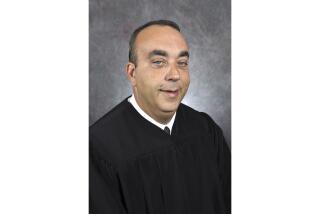Up in the air on hurricane season
This could be a tumultuous year for tropical weather with 15 named storms, including eight hurricanes, if storm prognosticators William Gray and Philip Klotzbach are to be believed.
The question is: Should they be?
In issuing their revised seasonal outlook for 2008 on Wednesday, Gray and Klotzbach of Colorado State University reignited a controversy over whether long-range forecasts like theirs have any validity.
Some forecasters say predictions so far in advance contain too much margin for error, confuse the public and may lull people into not making adequate hurricane preparations.
Those criticisms come after Gray and Klotzbach overestimated the 2006 and 2007 seasons and severely underestimated the chaotic 2005 season; in April of that year, they called for seven hurricanes to emerge -- and 15 eventually formed.
Among the critics of the seasonal forecasts are some of meteorology’s elite: the forecasters at the National Hurricane Center in Miami-Dade County, who say residents of southern Florida and other hurricane-prone areas need to make careful preparations no matter how many storms are predicted for a given season.
“The forecasts tell you nothing about whether you’re going to get hit in any given year -- even if they’re dead-on accurate,” senior hurricane specialist James Franklin said. “As we’ve seen, they’re not dead-on accurate.”
Bryan Norcross, hurricane specialist with CBS News, said that although seasonal forecasts more often than not correctly predict whether a season will see above- or below-average activity, they have “no value to individuals who live in the hurricane zone. There is no choice but to prepare every year as if you knew the Big One was coming.”
The six-month Atlantic hurricane season starts June 1.
The National Oceanic and Atmospheric Administration, parent agency of the hurricane center, is scheduled to release its own seasonal outlook at the end of May. But it might tone down its usual presentation based on the concerns of hurricane forecasters that long-range predictions serve little purpose for the average person.
“NOAA has been looking at ways to minimize the attention that these forecasts have gotten,” Franklin said. “Exactly how they’re going to do that hasn’t been revealed to me.”
Gray, a professor of atmospheric sciences who pioneered the techniques of seasonal predictions 25 years ago, argues that the forecasts satisfy the public’s curiosity and call attention to “the hurricane problem.”
“People want to know,” he said.
But in their 2008 forecast, for the first time Gray and Klotzbach are including a disclaimer: “Everyone should realize that it is impossible to precisely predict this season’s hurricane activity in April.” In the last decade, roughly, the Colorado forecasters have batted .500.
More to Read
Sign up for Essential California
The most important California stories and recommendations in your inbox every morning.
You may occasionally receive promotional content from the Los Angeles Times.










